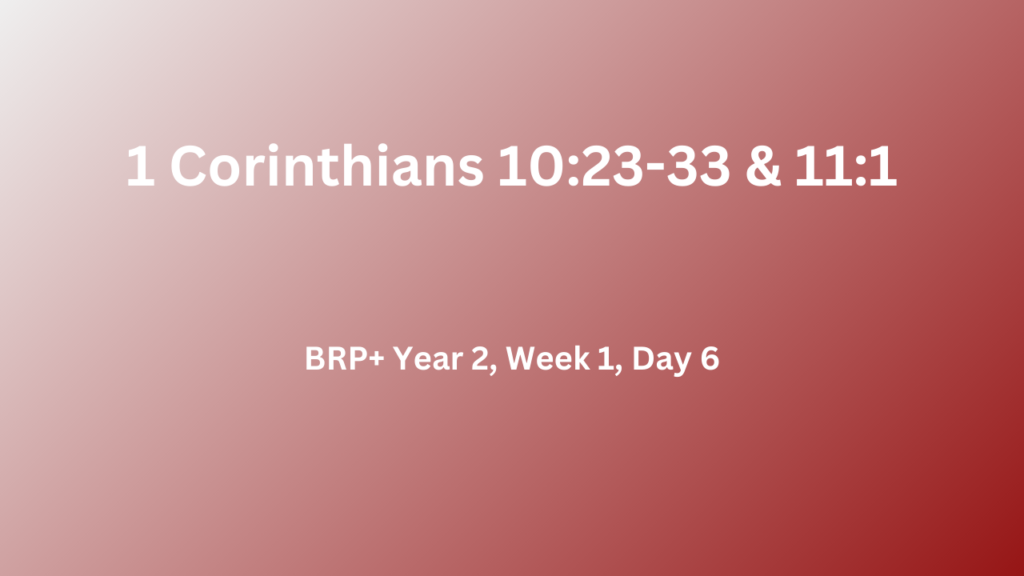1 Corinthians 10:23-33 & 11:1
Q.1. What principles should govern our lifestyle? How broad is our liberty in Christ? What else should direct our conscience before God and people? – (1 Cor.10:23-29)
We must learn to ask the right questions. Not – “Is it lawful or allowable”? but – “Does it profit and build up others”? (1 Cor.10:23). Not – “Is it beneficial to me”? but – “Does it benefit others”? (1 Cor.10:24). Since God made everything there is, we should enjoy things without asking too many questions (see 1 Cor.10:25f). This especially applies to our own liberty amongst unbelievers, unless a believer points out the connection (see 1 Cor.10:27-28). Paul encouraged believers to enjoy their liberty in Christ, but to be aware of how these liberties may impact on the faith of others (see1 Cor.10:29-30). So, we walk the fine line between enjoying the liberties purchased by Christ and our concern for how our lifestyle impacts those around us.
Q.2. How should we rationalize the restrictions placed on us from others? What should our attitude ultimately be? Why did Paul modify his lifestyle before others? – (1 Cor.10:30-33; 11:1)
Paul suggested that regardless of how we live, we will always have critics and those who malign us (see 1 Cor.10:30). He identified Jews, Greeks, and other churches (like denominations today), as having differences. He urged the Corinthians not to cause offense to any of these groups (see 1 Cor.10:32). He laid down a principle that should govern everything we do by – Whether then, you eat or drink or whatever you do, do all to the glory of God (1 Cor.10:31). The reason he would not insist on his own liberties was that he sought to – … please all men in all things, not seeking my own profit but the profit of the many, so that they may be saved (1 Cor.10:33). He tried to follow in the footsteps of Jesus. Consequently, he could urge them – Be imitators of me, just as I also am of Christ (1 Cor.11:1 c.f. Col.3:17).

